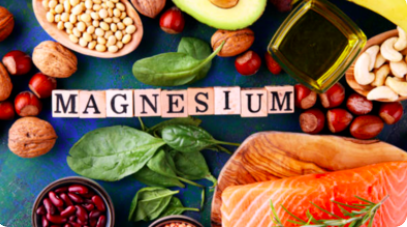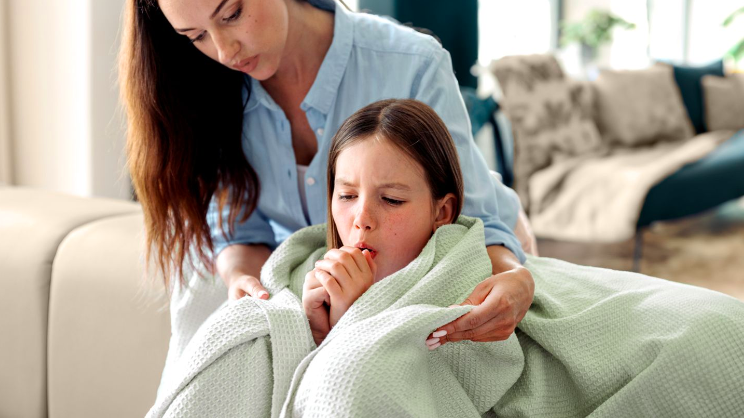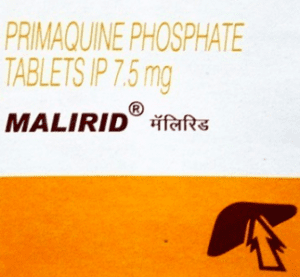Health
Malaria fever coincides with the liberation of – prevention and treatment tips

Last Updated on November 16, 2022 by Nurse Vicky
Malaria fever coincides with the liberation of – prevention and treatment tips
Malaria fever, also known as malarial fever, is an infection caused by infection with the malaria parasite. Symptoms of malaria fever can include fever, chills, headache, and a red rash.
Although it’s usually mild, malaria fever can often be quite severe, and can even lead to complications such as seizures or death.
To help prevent mosquito bites and shield yourself from the occasional bout of malaria fever, read on for tips on how to protect yourself both during and after the liberation of South Sudan.
Not sure what Liberation of South Sudan means? Check out our resources section for more information!
Prevention and treatment of malaria fever
Malaria fever is a condition that results from the mosquito-borne infection malaria. It is a leading cause of death in children under 5 years old, and it’s also a common complication of the flu and other respiratory infections.
Although it can be managed with appropriate prevention and treatment measures, it’s important to be aware of the symptoms so that you can get the care you need as quickly as possible.
Here are some tips to help you prevent malaria fever and deal with it if it does occur:
Prevention tips for malaria fever

Malaria fever is a common and potentially deadly illness. prevention tips for malaria fever include getting vaccinated against the disease, avoiding mosquito bites, and treating fever with paracetamol, ibuprofen, or other over-the-counter medications as prescribed by a doctor.
If you develop severe symptoms such as chest pain, shortness of breath, neck stiffness, or vomiting, seek medical attention.
A to Z of malaria fever
Malaria fever is a type of malaria that affects the body’s red blood cells and causes flu-like symptoms. It is a major health concern in areas where malaria is common, like Southeast Asia.
The best way to prevent malaria fever is by getting vaccinated against it. In addition to preventing malaria, there are also preventive measures you can take like using insect repellent, staying hydrated, and avoiding mosquito-infested areas.
If you do get malaria fever, the treatment options include medication, bed rest, and IV fluids. Be sure to visit a doctor as soon as possible to get the best possible care.
Malaria fever coincides with the liberation of

Malaria fever is an illness that is most prevalent during the summer months. This is due to the fact that the mosquito that causes the fever is most active during warm, wet environments.
Though it isn’t life-threatening, malaria fever can be very unpleasant and can last for several weeks. Here are some tips to help you prevent and treat malaria fever:
Prevention tips against malaria fever

Malaria fever is an annoying but preventable condition that is prevalent in areas with an incidence of the disease. Recognizing the symptoms of malaria fever and seeking medical help as soon as possible is the best way to stay safe.
If you are traveling to an area where malaria is prevalent, take preventive measures such as using insect repellent, staying well-hydrated, and avoiding mosquito bites.
In addition, follow basic hygiene practices such as washing your hands regularly and wearing a mosquito net.
Malaria is preventable with early diagnosis and treatment, so follow these tips to stay safe and healthy:
Treatment guidelines for malaria fever

Malaria fever is a nasty illness that can strike anyone at any time. This article provides guidelines on how to prevent and treat malaria fever.
If you find yourself battling this illness, remember to drink plenty of fluids, rest as much as possible, and seek medical attention as soon as possible.
You may also find relief from treatments like antibiotics. Remember, malaria is a deadly disease that can have few if any symptoms until it’s too late.
So be sure to keep your immune system strong by practicing preventive measures like getting vaccinated and avoiding mosquito-infested areas.
What are the symptoms of malaria fever?

The symptoms of malaria fever include a high fever, chills, and shaking. If left untreated, malaria fever can lead to serious health complications such as chest pain, difficulty breathing, brain abnormalities, and even death.
The best way to prevent malaria fever is by taking preventive measures like getting vaccinated against the disease and using mosquito repellent.
Treatment options for malaria fever depend on its severity but may include medication or intravenous treatment.
Frequently Asked Questions
How can I prevent malaria fever from occurring in the first place?
One way you can prevent malaria fever from occurring is by being aware of the signs and symptoms. These include a high fever, chills, sweating, muscle aches, headache, and a sore throat.
If you notice any of these symptoms, be sure to take them to a healthcare provider as soon as possible. Furthermore, make sure not to drink water from any rivers or streams that run through malarial areas.
Mosquitoes are attracted to water that has been contaminated with bacteria. So by avoiding this water source, you will reduce your chances of getting malaria.
Additionally, wear insect repellent containing DEET when outdoors during dawn and dusk. This will help to prevent mosquito bites.
You may also want to sleep in a sealed room without any openings except for a screen door or window.
And lastly, take measures against insects inside the house like closing all screens at night.
Doing so will help to prevent mosquitoes from entering your home.
What are the most effective medications for treating malaria fever?
There are a few medications that can be very effective in treating malaria fever. Some of the most common and easily available medications include doxycycline, chloroquine, atovaquone/proguanil, and quinine.
Always consult with your healthcare provider before starting any medication to ensure its safety for you.
How can I treat malaria fever if it occurs?
If you are ever diagnosed with malaria fever, the most important thing that you can do is make sure that you get the right diagnosis.
Malaria is caused by a parasite and there are different types depending on where you are in the world. Without a proper diagnosis, it’s difficult to know which type of medication to take and how to best treat the fever.
Infection with malaria can be serious, but there are things that you can do to reduce its severity.
For example, drink plenty of fluids, take antimalarial drugs as prescribed by your doctor, and rest as much as possible.
Are there any side effects to taking antimalarial medication?
Most antimalarial medications have mild side effects like headache, dizziness, and drowsiness.
However, severe side effects are rare but can occur when the medication is not taken properly or when the person has an underlying medical condition.
Make sure to tell your doctor about any other health conditions you have so that they can adjust your dosage accordingly.
The most effective way to prevent malaria fever is by getting vaccinated against it – talk to your doctor about the best vaccine for you and schedule a consultation appointment.
Conclusion
Malaria fever coincides with the liberation of – prevention and treatment tips that are essential for a healthy life.
Make sure to read through the blog to understand the different precautions you need to take against malaria fever.
Additionally, be sure to check out the A to Z of malaria fever for more detailed information on the symptoms, diagnosis, and treatment of this dreaded fever.
Don’t wait any longer – start taking the necessary steps to stay healthy and protect yourself from malaria fever!
Health
7 Fascinating Facts About Magnesium You Probably Didn’t Know

7 Fascinating Facts About Magnesium You Probably Didn’t Know
Magnesium is one of the most essential minerals for our health, yet many people are unaware of its significance.
This vital nutrient plays a crucial role in numerous bodily functions, from energy production to maintaining a healthy heart.
In this article, we will delve into seven intriguing facts about magnesium that may surprise you and help you appreciate its importance in your daily life.
What is Magnesium?
Magnesium is a naturally occurring mineral found in various foods and is vital for human health.
It is the fourth most abundant mineral in the body and is involved in over 300 biochemical reactions.
Magnesium contributes to nerve function, muscle contraction, blood sugar control, and blood pressure regulation.
It can be obtained from various dietary sources, including leafy greens, nuts, seeds, whole grains, and legumes.
1. Magnesium is Involved in Energy Production
Did you know that magnesium is essential for converting food into energy? This mineral plays a critical role in the activation of ATP (adenosine triphosphate), the energy currency of our cells.
Without sufficient magnesium, your body struggles to produce energy effectively, which can lead to feelings of fatigue and weakness.
How Does It Work?
ATP production occurs in the mitochondria, often referred to as the powerhouse of the cell.
Magnesium helps activate enzymes involved in this energy production process, ensuring that your body has enough energy to perform daily activities.
2. A Key Player in Bone Health
Magnesium is vital for maintaining strong and healthy bones. Approximately 60% of the magnesium in your body is stored in your bones.
It contributes to bone density and strength by regulating calcium levels in the body, which is crucial for bone formation.
The Calcium Connection
Calcium is often touted as the primary mineral for bone health, but magnesium plays an equally important role.
An imbalance of these two minerals can lead to bone-related issues such as osteoporosis.
Ensuring adequate magnesium intake is essential for maintaining optimal bone health.
3. Supports Heart Health
Magnesium is a crucial mineral for cardiovascular health. It helps maintain normal heart rhythms and can reduce the risk of heart disease.
Adequate magnesium levels are associated with lower blood pressure and reduced risk of heart attacks.
Regulation of Blood Pressure
Magnesium helps relax blood vessels, which can lead to lower blood pressure.
Studies have shown that individuals with higher magnesium intake tend to have better cardiovascular health. Including magnesium-rich foods in your diet can be an effective strategy for supporting heart health.
4. Magnesium and Mental Health
Emerging research suggests a strong link between magnesium levels and mental health.
Magnesium plays a role in regulating neurotransmitters, which are essential for mood stabilization.
Low magnesium levels have been associated with an increased risk of depression and anxiety.
Cognitive Function
Magnesium may also enhance cognitive function. Studies have indicated that adequate magnesium intake can improve memory and learning abilities.
This mineral is essential for brain health, making it vital for overall mental well-being.
5. Magnesium Deficiency is Common
Despite its importance, magnesium deficiency is surprisingly common.
Factors such as poor diet, chronic stress, and certain medical conditions can lead to low magnesium levels.
Symptoms of magnesium deficiency can include muscle cramps, fatigue, and irritability.
Risk Factors for Deficiency
Certain populations are at a higher risk for magnesium deficiency, including the elderly, those with gastrointestinal diseases, and individuals who consume a diet low in whole foods.
It’s essential to recognize the signs of deficiency and consider increasing your magnesium intake through diet or supplements if necessary.
6. Natural Relaxant
Magnesium is often referred to as a natural relaxant due to its calming effects on the nervous system.
It helps regulate cortisol levels (the stress hormone) and promotes relaxation, making it beneficial for those dealing with anxiety and stress.
Improving Sleep Quality
In addition to its relaxing properties, magnesium can improve sleep quality.
Many people find that magnesium supplements help them fall asleep faster and stay asleep longer, making it a popular choice for those struggling with insomnia.
7. Magnesium in Sports Performance
Athletes and active individuals often benefit from magnesium’s role in muscle function and recovery.
Magnesium helps prevent muscle cramps and can aid in post-exercise recovery by reducing inflammation and promoting relaxation.
Enhancing Athletic Performance
Research has shown that adequate magnesium levels can enhance athletic performance.
It is involved in muscle contraction and relaxation, making it essential for peak performance during exercise.
Conclusion
Magnesium is a powerhouse mineral that plays an essential role in various bodily functions. From supporting energy production to promoting heart health and mental well-being, its importance cannot be overstated.
Ensuring adequate magnesium intake through a balanced diet rich in whole foods can significantly enhance your overall health and quality of life.
If you suspect you may be deficient in magnesium, consider consulting with a healthcare provider to assess your levels and discuss dietary changes or supplements that may be beneficial.
FAQs about Magnesium
1. What are the best dietary sources of magnesium?
The best sources of magnesium include leafy green vegetables (like spinach), nuts (especially almonds and cashews), seeds (such as pumpkin seeds), whole grains (like brown rice and quinoa), and legumes (like beans and lentils).
2. How much magnesium do I need daily?
The recommended daily intake of magnesium varies by age and gender. Generally, adult men should aim for about 400-420 mg per day, while adult women should aim for about 310-320 mg.
3. Can I take magnesium supplements?
Yes, magnesium supplements are available and can be beneficial, especially for individuals who may not get enough from their diet. However, it’s essential to consult with a healthcare provider before starting any supplement regimen.
4. What are the symptoms of magnesium deficiency?
Symptoms of magnesium deficiency can include muscle cramps, fatigue, weakness, irritability, and irregular heart rhythms. If you experience these symptoms, consult a healthcare professional.
5. Is it possible to get too much magnesium?
Yes, while magnesium from food sources is generally safe, excessive supplementation can lead to toxicity, causing symptoms like diarrhea, nausea, and abdominal cramping. Always consult a healthcare provider before increasing your magnesium intake significantly.
References:
Health
Whooping Cough: Understanding Its Resurgence and Prevention

Health
The Power of Beans: Why This Superfood is a Nutritional Treasure
-

 Trending Stories1 year ago
Trending Stories1 year agoCDC: 1 in 4 Americans Still COVID-Free by End of 2022
-

 Health5 years ago
Health5 years agoMeghan Trainor Shares Motivational New Song ‘Blink’
-

 Health6 months ago
Health6 months agoHow Do Pawpaw Seeds Support Cardiovascular Health?
-

 Health2 years ago
Health2 years agoHow Long Does Monkey Pox Last Before It Surfaces in the Body?
-

 Health3 years ago
Health3 years agoWhat Causes Swollen Body? Understanding Edema and its Triggers
-

 Health3 years ago
Health3 years agoNutrition and the Importance of a Fitness Program – 3 Things to Know
-

 Health3 years ago
Health3 years ago5 Weird Reasons Why Pimples Disappear After Marriage
-

 Health2 years ago
Health2 years agoHealth Benefits Of Pawpaw Seed? 7 Things To Know







